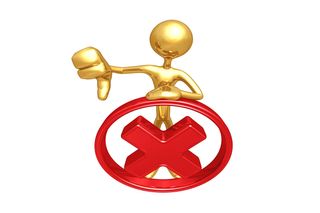Top 10 tech advert fails
We take a look back at 10 of the most notorious promotions to have been banned for their misleading nature.

People don't like being misled, especially when it comes to being told porkies about what companies can offer.
For that reason alone the Advertising Standards Authority (ASA) is a fine organisation that can put firms, who think they can lie to consumers, in their place.
Just this month, BT had two ads banned for being misleading.
So, we've drawn up our top 10 notorious promotions from the tech industry and why they were given the smackdown by the ASA.
10. Super Skype images August 2009
A Skype TV ad that showed a new father talking to his parents on a webcam was banned. During the ad, the young chap moved his laptop so his mummy and daddy could see his partner and newborn baby.
A total of five viewers complained, challenging whether the ad was misleading in its exaggeration of sound and picture quality.
Get the ITPro. daily newsletter
Receive our latest news, industry updates, featured resources and more. Sign up today to receive our FREE report on AI cyber crime & security - newly updated for 2024.
The ASA recognised Skype was trying to show a truly optimised version of the service, but said it did not convey typical performance levels that all its users could achieve.
9. Ambiguous Orange June 2010
Orange claimed in an ad its 3G network covered "more people in the UK than any other operator" something that Hutchison 3G UK, the owner of 3, said was simply not true.
For the ASA, the main issue was the ambiguity over the claim. It was unclear to the regulatory body whether the statement was referring to Orange covering more people in the places where they lived than any other operator, or more people in the UK, wherever they may be using their 3G mobile device.
One for the semantics professors this one...
8. Erroneous Ebay April 2009
On a poster, eBay ran with the tagline: "Guess What? 25 per cent Cheaper Than The High Street On Brand New Items." Can you guess where this is going?
Just one complaint was filed challenging eBay's claim, as it did not make it clear what the basis for the comparison was.
The small print on the ad revealed the 25 per cent claim was obtained by comparing the average sold price (including P&P) of 288 new products on eBay.co.uk with the price in mainstream retail stores. With each product, prices were obtained in six different shops and the average price was taken.
The ASA said the small print was insufficient in size to be overlooked, and consumers were likely to infer from the ad they could get a new item on eBay 25 per cent cheaper than they would from the high street on every occasion. The ad was therefore pulled.
Tom Brewster is currently an associate editor at Forbes and an award-winning journalist who covers cyber security, surveillance, and privacy. Starting his career at ITPro as a staff writer and working up to a senior staff writer role, Tom has been covering the tech industry for more than ten years and is considered one of the leading journalists in his specialism.
He is a proud alum of the University of Sheffield where he secured an undergraduate degree in English Literature before undertaking a certification from General Assembly in web development.





